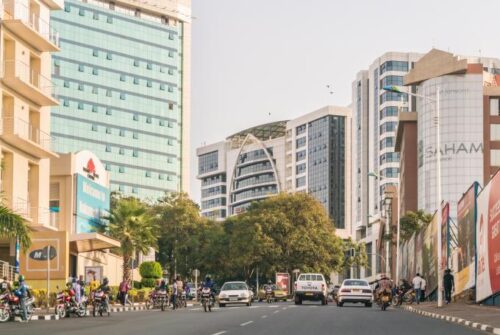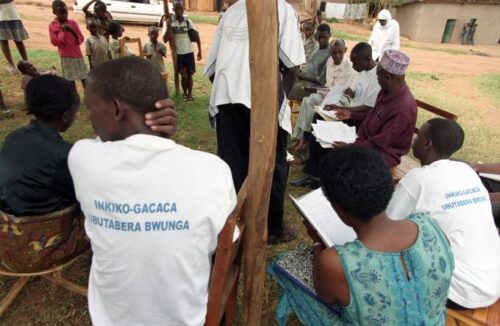Rwanda. Mending Broken Hearts.
This April, Rwanda commemorates the 29th anniversary of the genocide. The bitter fruit of the ethnic division between Hutu, Tutsi and Twa has distant roots. Father Marcel Uwineza, a Rwandan Jesuit reflects on those tragic events and the progress made towards reconciliation and peace.
The genocide (April-July 1994) was made possible following a process of mutual dehumanization; then it was the Tutsi who paid the highest price (some say 800,000 dead, another 500,000), but the Hutu, by the tens of thousands, also suffered the same fate.
The murders took place in public but also in religious spaces: schools, administrative buildings, social centres, churches and places of worship, etc. Structures that should have been for defence and comfort were transformed into scenes of massacres.
In recent years Rwanda – even if relations with the DR Congo and Uganda remain problematic – has made internationally recognized economic progress.The government has pushed for the creation of a non-low-income economy based only on agriculture but also on entrepreneurship and services. The fight against infant mortality and malaria has achieved considerable success with the increase of dispensaries, clinics and the use of anti-mosquito nets.

Kigali is the capital and largest city of Rwanda. Photo: 123rf
In many ways, however, it seems easier to build new infrastructure than to rebuild people’s hearts. For true human and inner growth, the young people of Rwanda need someone to help them read the country’s history. Education has been made accessible to many, regardless of ethnicity. However, it is a great challenge to find work and put what you have learned to good use. The unemployment rate is still too high but, while the need to grow further remains, it must be recognized that the country has made considerable strides in improving living conditions.
Looking back on the tragic events of 1994 and the following years, the memory recalls, among other things, the schoolchildren of Nyange High School, killed by the Interahamwe militia in March 1997, when their leaders refused to divide them along ethnic lines. The sacrifice made by these students continues to inspire many.
Computer and technology education expanded after thousands of miles of fibre-optic cable were laid across the country boosting the use of the internet. Finally moving from a single national university in 1994 to over ten private universities in 2022 has certainly contributed to changing the mentality of Rwanda.

The Gacaca courts have helped in the process of reconciliation.
Women have also achieved prestigious goals: today they represent over 60% of the national parliament, a higher percentage than in all other African countries. Women have been at the centre of reconciliation efforts in traditional Gacaca courts, managing to help people confess to what happened in the genocide. Thanks to them, I myself learned the circumstances of the tragic loss of my brothers and sisters. Though imperfect, the Gacaca courts have helped in the process of reconciliation, while also reducing the huge number of people languishing in prison.
As a Jesuit priest, today I am serene because I have understood how my wound connects me deeply to God, allowing me to see his grace. And I manage to help others who are still suffering the consequences of the serious events that occurred, to seek reconciliation and peace.



